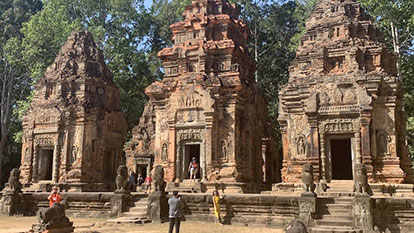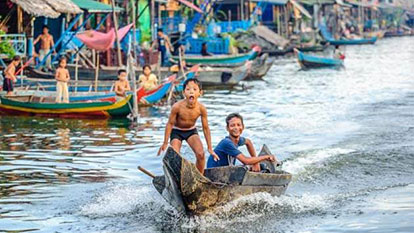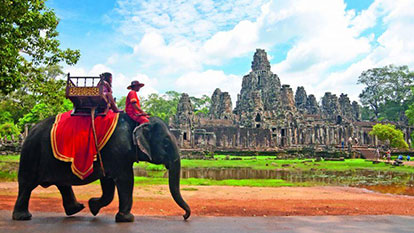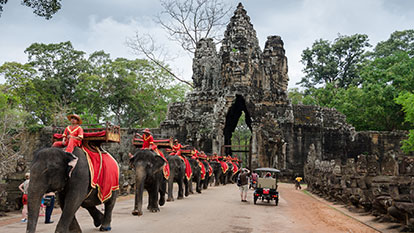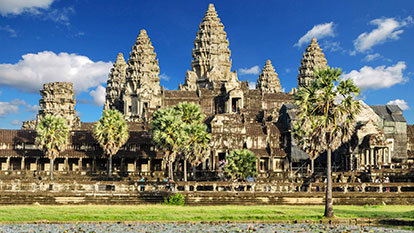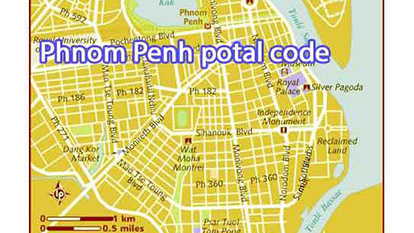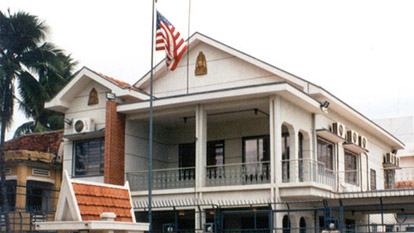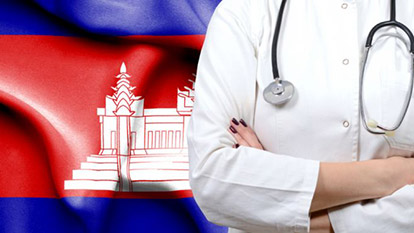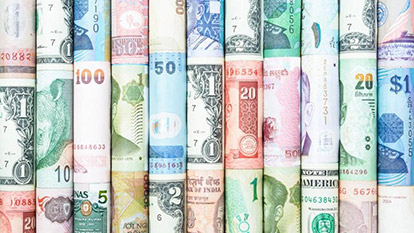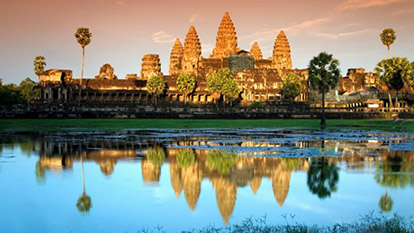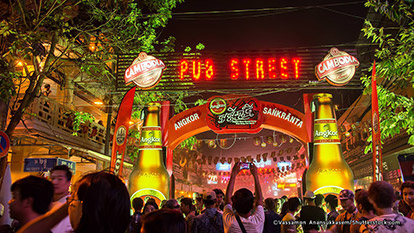Cambodia economy
When engaging in business in Cambodia, understanding the local culture and economic landscape is crucial for success. At Galatourist, your trusted Cambodia travel agency, we recognize the importance of navigating the formal business environment in this vibrant country. Cambodian businesspeople are known for their formality, which extends to both their interactions and attire. However, as international influences grow stronger, the business environment in Cambodia is gradually evolving. For those planning to combine business with travel, our comprehensive Cambodia travel guide offers valuable insights into office etiquette and economic conditions, ensuring you're well-prepared for successful business engagements in this unique and culturally rich destination.
Business Etiquette in Cambodia
Cambodian business interactions are typically formal, with extended pleasantries common before any substantive discussions take place. This practice is rooted in the country's rich cultural heritage, where respect and patience are highly valued. When meeting Cambodian businesspeople, expect a slower pace of conversation, where building trust and rapport is prioritized over rushing into negotiations.
Dress Code: Balancing Formality with Practicality
As Cambodia deepens its ties with the global business community, the dress code among Cambodian professionals is gradually becoming more formal. However, given the country’s hot and humid climate, it is both acceptable and practical to forgo the traditional suit jacket. Instead, lightweight and breathable fabrics are favored, enabling businesspeople to maintain a polished, professional appearance while staying comfortable in the heat. For more insights on adapting to the local business culture, our Cambodia travel guide offers essential tips for both business and leisure travelers.
Office Hours and Work Culture
In Cambodia, business hours are shaped by a unique blend of local customs and historical influences. Offices generally open early, between 7:30 AM and 8:00 AM, and close around 5:00 PM or 6:00 PM. A distinctive feature of the Cambodian workday is the extended lunch break from 11:30 AM to 2:00 PM, a tradition dating back to the French colonial era. This midday pause allows employees to rest during the hottest part of the day. Additionally, many offices remain open on Saturdays, so it’s advisable to confirm specific working hours with your Cambodian counterparts. For a deeper understanding of the Cambodia lifestyle, including business practices, Galatourist offers valuable insights to help you navigate your journey effectively.
An Overview of Cambodia's Economy
The Cambodian economy has faced significant challenges in the past but has shown remarkable resilience and growth in recent years. The country’s economic foundation was severely impacted by the Southeast Asian conflicts and the brutal regime of the Khmer Rouge between 1975 and 1979. However, since the regime's fall, Cambodia has embarked on a slow yet steady path to recovery.
Agriculture: The Backbone of the Economy
Agriculture continues to be the bedrock of Cambodia’s economy, playing a crucial role in the livelihoods of the majority of its population. Rice, the primary staple, dominates the agricultural landscape, reflecting its importance in both the daily lives of Cambodians and the country’s economic structure. The agricultural sector is the largest employer in Cambodia, providing jobs to a significant portion of the population. Despite its critical role, the sector’s growth has been steady rather than rapid, gradually evolving to meet both domestic needs and the demands of international markets.
Cambodia’s fertile land is not only ideal for rice cultivation but also supports a diverse array of crops, each contributing to the country’s food security and export potential. These crops are essential not just for local consumption but also as key exports that bolster Cambodia’s economic resilience. Understanding the dynamics of this vital sector offers valuable insight into the broader Cambodian economy, especially for those looking to engage with the country more deeply. For travelers interested in exploring the rural heartlands and agricultural practices of Cambodia, Galatourist provides essential Cambodia travel tips to help you experience the country’s rich agricultural heritage firsthand.
Industry and Exports: A Growing Sector
In addition to agriculture, Cambodia has seen rapid growth in its timber industry. However, this expansion has raised concerns about deforestation and its long-term environmental impact. The country’s main exports include timber, footwear, fish, rubber, tobacco, and clothing, reflecting a diverse economic base.
Economic Aspirations and Challenges
Cambodia is on an ambitious path to elevate its economic standing, striving to achieve the status of an Asian "tiger" economy. The country’s membership in the Association of South-East Asian Nations (ASEAN) reflects its commitment to regional economic integration and cooperation. Despite challenges, such as the impact of global economic conditions and structural limitations, Cambodia has made significant strides in recent years.
As of 2024, Cambodia's economy is expected to grow by 6.6%, with projections indicating further growth of 5.9% in 2025. This optimistic outlook is driven by a revival in key sectors, including the garment industry, non-garment manufacturing, and a strong rebound in tourism. The service sector, particularly hotels and restaurants, is also seeing substantial growth, which contributes to the overall positive trajectory.
Cambodia's GDP per capita is expected to increase, reflecting the broader economic development across various sectors. However, challenges remain, including a high dependence on external markets, slow diversification, and vulnerabilities to global economic fluctuations. Nevertheless, the country is set to maintain a controlled inflation rate, contributing to stable economic conditions.
For those interested in understanding more about the current Cambodia economy situation, including the opportunities and challenges for investors and businesses, Galatourist offers detailed insights and expert guidance. This information is essential for anyone looking to engage with Cambodia's evolving economic landscape, whether for business or travel purposes.
Conclusion
Successfully navigating the Cambodian business environment requires a deep understanding of the country’s unique cultural nuances and economic dynamics. Cambodia is a nation with a rich cultural heritage, where traditional customs continue to play a significant role in everyday business interactions. For international entrepreneurs, this means that taking the time to learn and respect these local customs is not just courteous but essential for building trust and strong business relationships. Awareness of the cultural expectations, such as the importance of formalities in meetings and the traditional ways of showing respect, can greatly enhance your ability to connect with Cambodian partners.
In addition to cultural sensitivity, a solid grasp of Cambodia’s economic landscape is crucial. The Cambodian economy, while historically challenged, is on a path of steady development as the country integrates more fully with the global economy. This presents numerous opportunities for those who are well-prepared and informed. Entrepreneurs who approach the market with a thorough understanding of the current Cambodia economy situation can identify and leverage these opportunities more effectively. By aligning their strategies with the country’s economic trends, they can position themselves for long-term success in this emerging market.
This article is designed to offer a foundational understanding for anyone looking to conduct business in Cambodia. Whether your goal is to establish a lasting presence in the country or to engage with Cambodian partners on specific projects, being well-versed in local business practices and economic conditions is key to achieving your objectives. For additional insights and tailored advice, Galatourist is your go-to resource, offering expert guidance on navigating both the cultural and economic aspects of doing business in Cambodia. With the right knowledge and respect for local practices, you can unlock the potential that Cambodia offers and build fruitful business ventures in this dynamic market.
---
Read more:
- Agence de voyage locale francophone au Vietnam
- Croisières Baie d'Halong
- Croisière Swan À La Baie De Bai Tu Long
- Croisière Hermes À La Baie D'Halong
- Croisière Cat Ba
- Guide voyage Cat Ba
Other travels guides all over the world
Sincerely yours & see you soon!
GALATOURIST since 2005.
Testimonials

Ms. Francesca Tronconi & Mr Vizzolini Davide (2pax) from Spain

Mrs & Mr. DUPUIS (2pax) from United States

Mr. Jeffrey Szymanski (2pax) from United States

Mrs Rosemary McGuinness (2pax) from Australia

Mrs Elena Maria Sanchez (2pax) from Spain

Group Marissa (4pax) from United States

Mr Jerzy (2pax) from Canada





